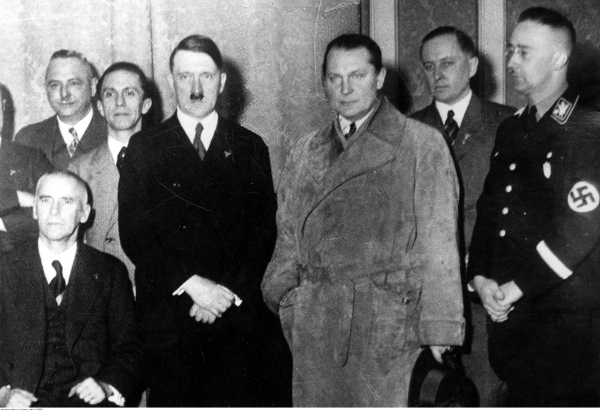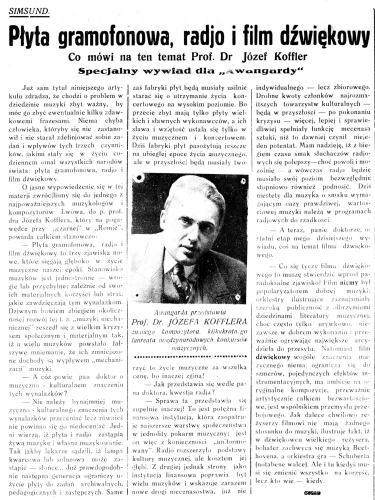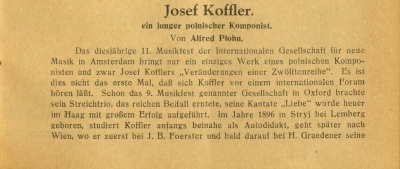Adolf Hitler appointed Chancellor of Germany on January 30, marking the Nazi Party's rise to power. By March, the Enabling Act granted Hitler dictatorial authority, initiating the Third Reich era and beginning the systematic persecution of political opponents and Jews.

The composer’s mother Regina dies in Stryj, in the house at 16 Potockiego St., aged 56. Dr Beglaiter arrives to declare her dead. The cause of death is a ‘liver tumour’.
Koffler falls seriously ill. Orkiestra No. 7 prints this apology:
The content of the current issue is rather different from standard. Many of the columns that we normally print are missing. This is due to the serious illness of our Editor in Chief. We apologize to our Honourable Readers and hope that the next issue will come out in its usual form.
As a result of efforts by Oswald Wandel, co-founder of the Jewish Music Society, a local branch of the Early Music Lovers Association is to be established under the auspices of the PTM. Count Leon Piniński is to become its president, while Koffler is invited to serve on its artistic and lecture committee.
Koffler is interviewed by Lwów weekly Awangarda (‘Prof. Dr Józef Koffler on the Gramophone Record, the Radio, and Talking Films. An Exclusive Interview for Awangarda’, No. 11, p. 4). He presents the following opinion:
One should not either over- or underestimate the musical and cultural importance of these inventions. […] Probably already in the next generation, the [music] record will be limited to archival, educational and surrogate use, while record producers will need to take great care to maintain high standards of concert life. Only recordings by great and famous performers are in much demand. Their fame and recognition can only be established in musical and concert activity. Record producers still sponge off the previous era of musical life. In the future, however, they will have to create that musical life at any cost or perish! […] The silent film popularised good music. The orchestras that illustrated the pictures made the wide audience familiar with vast areas of music literature, albeit frequently only fragmentarily, not always in [good interpretations, and playing mostly the greatest masterpieces till we were satiated with them. The talking pictures, on the other hand, have no musical significance whatsoever. They limit themselves to noises and individual instrumental effects. Their ambition is to present original music compositions which are, for the most part, artistically quite worthless. The talking film is a partner of the musical hit industry. Just how much film directors are completely indifferent to the music at the moment is evident from the fact that, in a talking picture by a great film director, the protagonist praises the work of Beethoven while the orchestra is playing Schubert (his waltzes, by the way). All this, too, will have to change for the better one day, but who knows when it will happen?
The music magazine Signale für die musikalische Welt, Nos. 23/24, prints Alfred Plohn’s article about Koffler’s music, referring to such compositions as, among others, Eight Little Pieces for piano, Violin Concerto (consisting of a toccata, variations on a Polish folksong, and finale), as well as String Quartet. He also mentions the composer’s work on his second Sonatina for piano.




